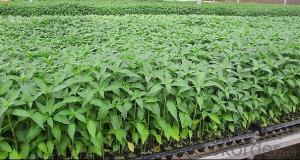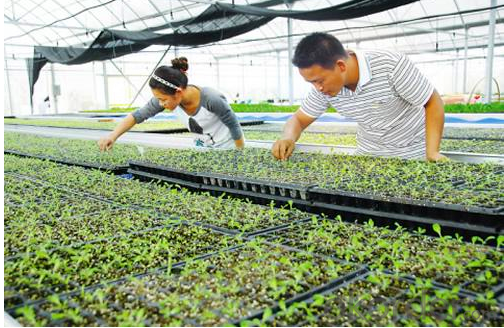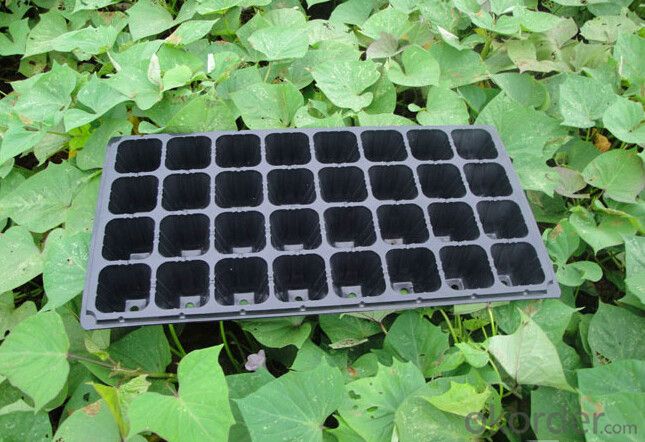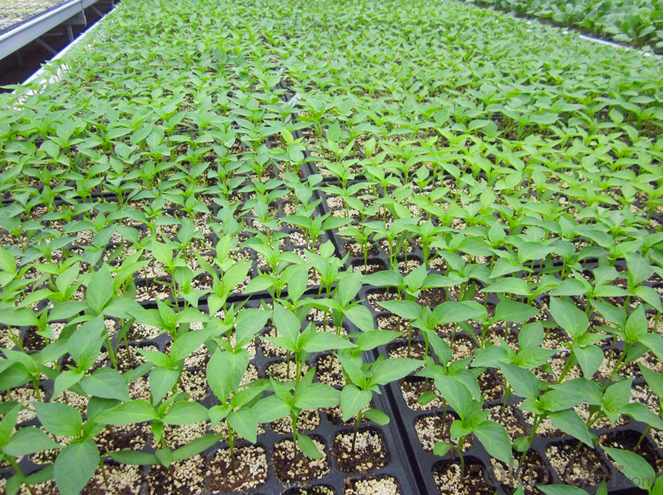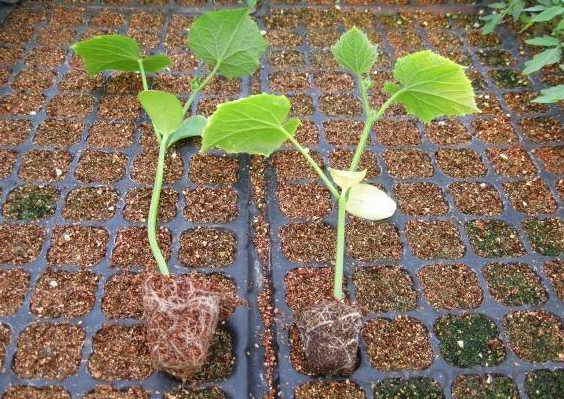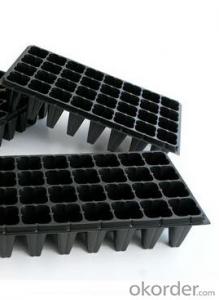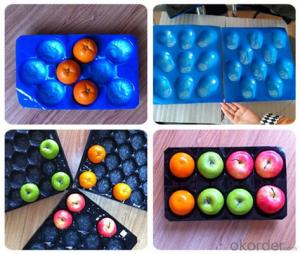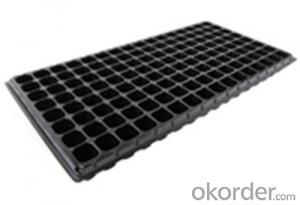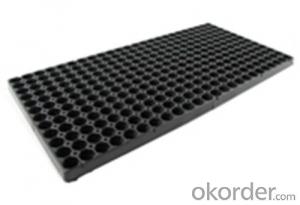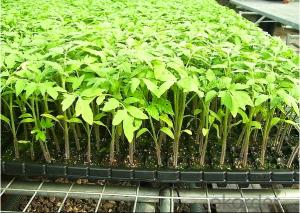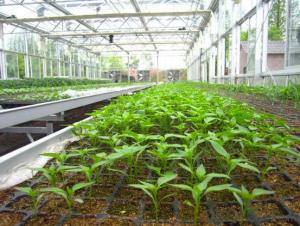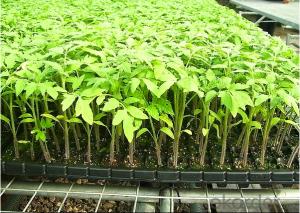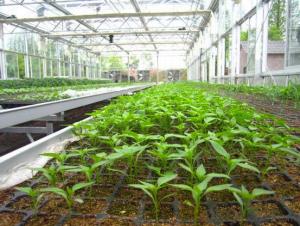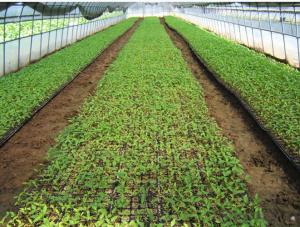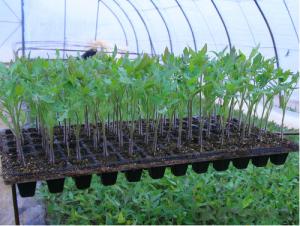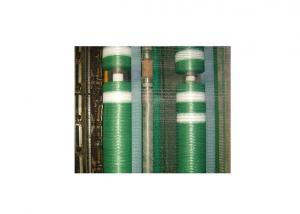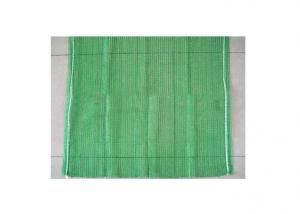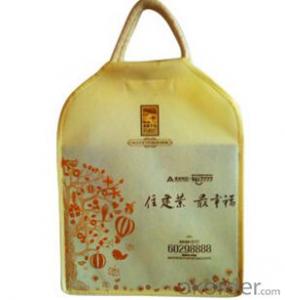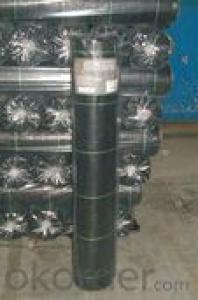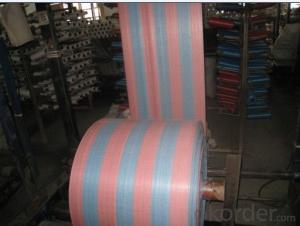Plug Trays (Growing and Seedling) Greenhouse Usage Flat Tray HIPS Made Plastic
- Loading Port:
- China main port
- Payment Terms:
- TT OR LC
- Min Order Qty:
- 3000 pc
- Supply Capability:
- 50000 pc/month
OKorder Service Pledge
OKorder Financial Service
You Might Also Like
Brief Introduction to CNBM:
CNBM International Corporation (CNBM International) is the most important trading platform of CNBM Group Corporation, a state-owned company under the direct supervision of State-owned Assets Supervision and Administration Commission of the State Council.
CNBM International is highly recognized by its business partners and clients all over the world and has obtained rapid development under the spirit of win-win. We will carry on the mutual beneficial, innovative and revolutionary trading structure as we did before, create value for our employees, share holders and clients and benefit the whole society in our future development.
Features of Plug Trays (Growing and Seedling) HIPS Made Plastic Plug Tray for Greenhouse:
· Material: HIPS
· Thickness: 0.5mm-1.5mm, Standard:1mm
· Weight: 80g(±5)g-230g(±5)g, Standard weight:155g(±5)g
· Size: length:490mm-540mm, width:190mm-345mm,depth:25mm-150mm
· Standard:540mmX280mm
· Cell count: 18-512
· Package: In Carton
· Warrenty: 8-10 times
Picture:
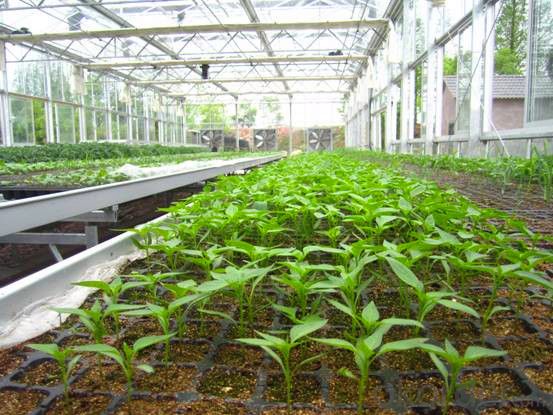
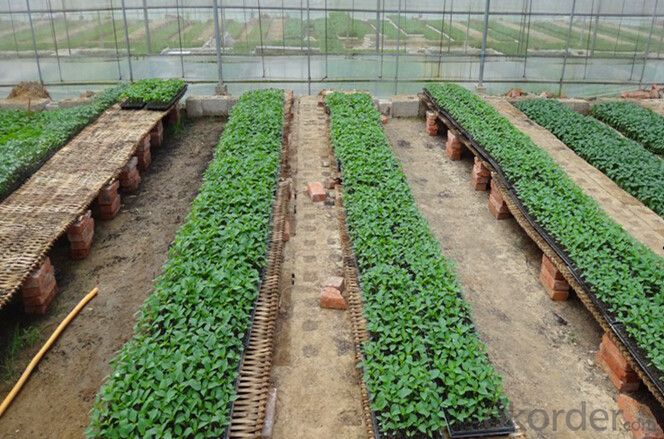
Specification of Plug Trays (Growing and Seedling) HIPS Made Plastic Plug Tray for Greenhouse:
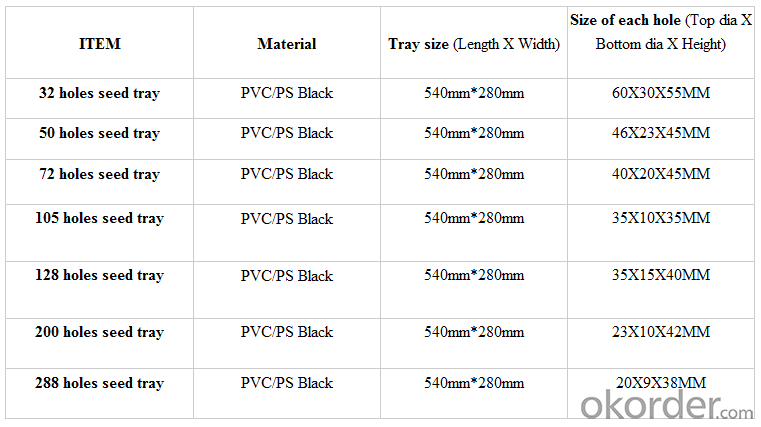
FAQ of Plug Trays (Growing and Seedling) HIPS Made Plastic Plug Tray for Greenhouse:
Q:1.How many times can the seed tray be used?
A: Under the same environment, it is decided by the thickness. Usually 0.6mm thickness can be used for 1 or 2 times.
1.0 thickness can be used for 3-4 times. 1.5 thickness can be used for 8-10 times.
Q: 2.How long is the production time?
A: Usually one to two weeks.
Q: 3.How is the seed tray being packaged?
A: They can be packaged in carton or pallets. Carton size is 1375px*725px*1250px.
- Q: This question asks for guidance on selecting the appropriate type of agricultural plastic water pipe for an irrigation system.
- <p>When choosing a suitable type of agricultural plastic water pipe for your irrigation system, consider the following factors: 1) Material: Look for pipes made from durable materials like PVC or PE, which are resistant to chemicals and UV rays. 2) Diameter: Select a pipe diameter that matches your water flow requirements. Larger pipes are suitable for higher flow rates. 3) Pressure Rating: Ensure the pipe can withstand the pressure of your water source. 4) Flexibility: Flexible pipes can be easier to install and navigate around obstacles. 5) Cost: Compare prices and lifespan to find a cost-effective option. 6) Local Conditions: Consider the climate and soil conditions, as some materials may degrade faster in certain environments. Always consult with a local irrigation specialist or supplier for recommendations tailored to your specific needs.</p>
- Q: Can plastic drip irrigation tapes be reused?
- No, plastic drip irrigation tapes are not typically designed to be reused.
- Q: What's the best way to repair plastic products?
- Plastic handbags, wallets and other thick soft plastic film products broken or degumming, after the gap, you can use a hot iron bar, the need to repair the place of hot sticky hair, and quickly docking good, and then pressed hard on the mend.
- Q: Is it possible for farmers to recycle agricultural plastic film and use it to create new products?
- <p>Yes, farmers can use recycled agricultural plastic film to make new products. Recycling agricultural plastic film not only reduces waste but also conserves resources. The process involves collecting, cleaning, and shredding the plastic film, which can then be reprocessed into new plastic products such as irrigation pipes, mulch films, or even non-agricultural items like plastic lumber. This practice is beneficial for the environment and can also provide an additional income stream for farmers who participate in recycling programs.</p>
- Q: What is the lifespan of a nursery tray?
- The lifespan of a nursery tray can vary depending on the material it is made of and how well it is maintained. However, on average, a nursery tray can last anywhere from a few months to several years.
- Q: question - i have success fishing flukes on texas rig. But was thinking they are too heavy for fishing a carolina rig. So, question is can you fish carolina rigs with any plastics or only floating plastics, etc.
- Any plastics will work. I like using crawdad imitations a lot. Same with curly tail worms. Sometimes it's better to have a floating lure if you're fishing in lightly weeded areas and the c-rig allows the lure to float just above the weeds. Other times it doesn't matter too much if it floats or not. Just experiment a little and see what type of lure works best for you. good luck!
- Q: What are the main manufacturers of agricultural plastic products?
- Some of the main manufacturers of agricultural plastic products include Berry Global Inc., Dow Chemical Company, BASF SE, DuPont de Nemours Inc., and ExxonMobil Corporation.
- Q: Can ground cover be used to create a natural-looking border?
- Yes, ground cover can definitely be used to create a natural-looking border. Ground cover plants such as creeping thyme, creeping phlox, or vinca minor can be densely planted along the edge of a garden bed or pathway to form a low-growing, textured border. This creates a seamless transition between the garden and the surrounding landscape, giving a more organic and natural appearance to the border. Additionally, ground cover plants often have attractive foliage and colorful flowers, further enhancing the beauty of the border.
- Q: I want a co2 powered airsoft gun that shoots plastic bbs but the only ones i can find shoot metal ones.can i put the plastic bbs into the metal-shooting gun??
- I have a VERY old Daisy and a Crossman CO2 pistols, nice, still work fine, But they were made before plastic BBs were around so these guns are not rated at all. Wonder if I can use plastic BBs in them?
- Q: Do nursery trays come with a bottom tray for water drainage?
- Yes, nursery trays typically come with a bottom tray for water drainage.
Send your message to us
Plug Trays (Growing and Seedling) Greenhouse Usage Flat Tray HIPS Made Plastic
- Loading Port:
- China main port
- Payment Terms:
- TT OR LC
- Min Order Qty:
- 3000 pc
- Supply Capability:
- 50000 pc/month
OKorder Service Pledge
OKorder Financial Service
Similar products
Hot products
Hot Searches
Related keywords
